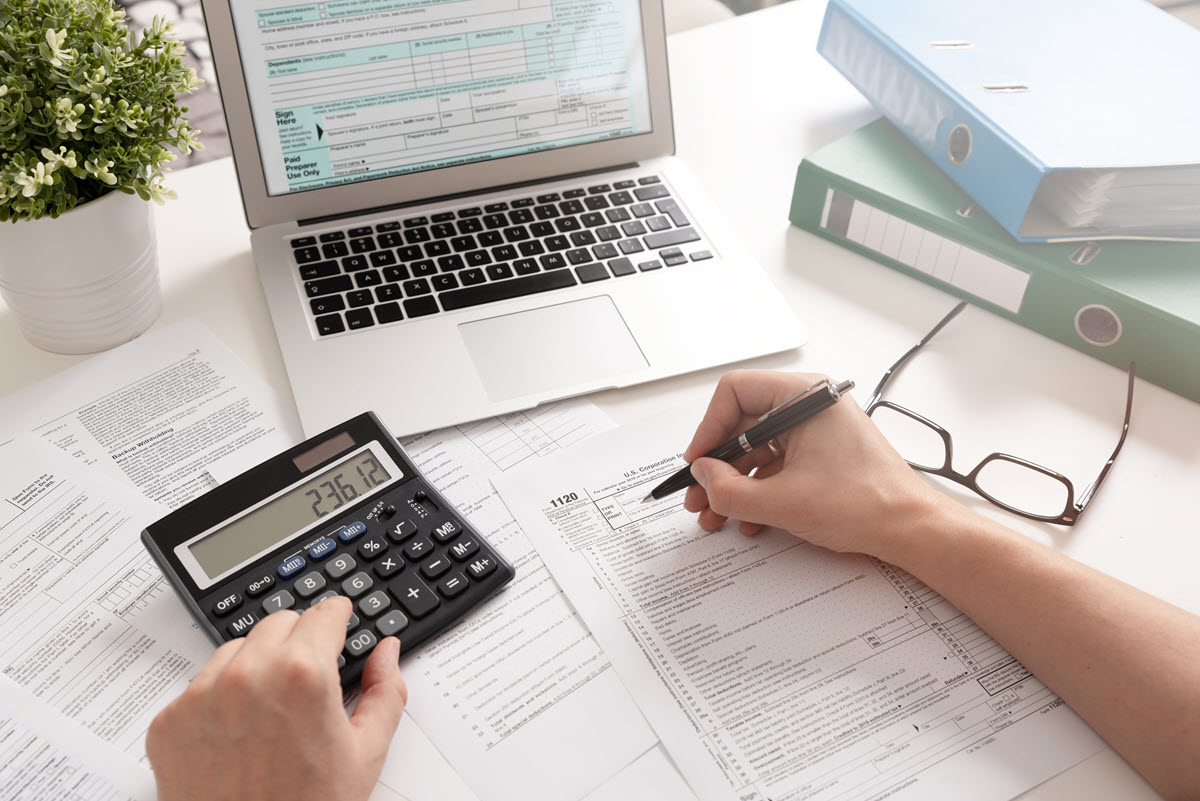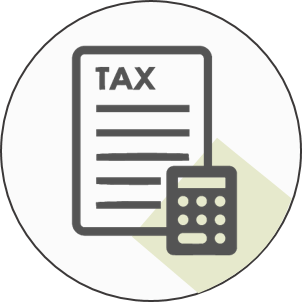For many individuals and families the tax refund is the single largest check of the year. Being prepared – before, during, and after tax season – can help you save time and money. These tips and suggestions can help you make the most of tax season.

1. Organize your paperwork
The sooner you begin organizing the information you need to file, the better – and potentially easier – the process will be. Gather essential documents and financial records including your W-2s, receipts for deductible expenses and charitable gifts, and prior year tax returns. All tax preparers are not created equal, and the scope of services may vary. This list can get you started but you should be sure to find out what you specifically need if you are using a preparation service:
- Your W-2 from each employer
- 1099s if you have self-employment, interest, investment, or other income
- 1099-SSA if you receive Social Security income
- Proof of any other income during the year, including self-employment income, alimony, rental, or other payments
- Proof of tax-deductible expenses, including mortgage interest, state taxes, local property taxes, student loan interest, childcare, medical costs, moving expenses, etc.
- Proof of contributions you have made to individual retirement plans or other retirement accounts
- Proof of charitable contributions you made
- Proof of health insurance coverage (Form 1095)
2. Review last year’s changes
Life changes may impact the taxes you owe. Over the past year, did you get married or divorced? Did you have or adopt a child? Did you start saving for college, contribute to a supplemental retirement plans or other investments, buy or sell a home, or pay for significant medical expenses? These – and other – changes may affect the amount of tax you’re required to pay.
3. Filing your taxes
There are various tax preparation options. You can use free tax preparation services, go to a paid tax preparer, or do-it-yourself. If you plan to use a free – or volunteer preparation – program, one valuable resource is the Volunteer Income Tax Assistance (VITA) program. Internal Revenue Service (IRS) certified volunteers provide free basic income tax return preparation with electronic filing to qualified individuals.
Another valuable resource is the Tax Counseling for the Elderly (TCE) program that offers free tax help for all taxpayers, particularly those who are 60 years of age and older, specializing in questions about pensions and retirement-related issues unique to seniors. Both VITA and TCE program sites are located in many areas across the United States, provide free tax preparation and filing services, and have professionals that can answer your tax questions.
If you pay someone to prepare your federal tax return, be sure that your tax preparer has a Preparer Tax Identification Number (PTIN). A paid tax preparer may be able to represent you before the IRS if you are audited or have other tax issues. The IRS has a searchable, sortable public directory on IRS.gov that taxpayers can use to research tax return preparers by name, zip code or credential.
- If you decide to prepare your taxes yourself, you may want to take them to a paid preparer to look over, fix any errors, and finalize the forms. This approach could give you both good experience and peace of mind. If you prepare yourself, consider the following questions:
- If you have any freelance or consulting work, do you want to defer any income to next year?
- Have you maximized your Individual Retirement Account contributions?
- If you are over 50, do you want to take advantage of the catch-up contributions?
- Did you contribute to a Health Savings Account?
- Are there any charitable contributions (cash, donations, etc.) that you may want to make before the end of the year?
- Did you contribute to a college savings plan that offer any tax benefits?
- Has your state-imposed penalties for not having health insurance?
- If you own a business, have you gathered all expenses?
- If you – or any dependents – are enrolled in school or an eligible training program, have you taken advantage of the Lifetime Learning Credit?
- Have you had any significant medical expenses? These can add up so you want to see if you unreimbursed allowable medical expenses are deductible.
Here are possible advantages and disadvantages for both options – using a tax preparer or preparing your own taxes – are listed below:
Using a Tax Preparer
- Receiving expert review and advice.
- Getting tax-saving suggestions based on your current year as well as strategies for the future.
- May have to pay for the service.
- May not be able to have immediate service during the busy tax season.
Preparing Your Own Taxes
- Potentially free.
- Gain valuable financial experience.
- Have total control over tax information and paperwork.
- Some tax software can be confusing and expensive.
- You could make a potentially costly mistake.
- You may not be aware of all the deductions to which you are entitled.
4. Learn More and get tax help
There are a variety of free resources to help you, including the VITA program which provides free tax preparation and filing services in more than 30 states plus the District of Columbia. You can also look for other free tax resources in your community. Be sure to do your research to make sure the services you choose are reputable.
Other helpful resources include:
- IRS Publication regarding IRS Certified Volunteers Providing Free Tax Preparation (available here: https://www.irs.gov/pub/irs-pdf/p3676bsp.pdf)
- IRS resources and staff. You can order free publications and forms, ask tax questions, and get help with unresolved tax issues by contacting the IRS. You can contact them at www.irs.gov or by calling 1-800-829-1040.
- Many post offices and libraries offer certain IRS forms, instructions and publications.
- You can walk into your local Taxpayer Assistance Center for person, face-to-face tax help. You may need to schedule an appointment.
5. If you receive a tax refund, this may be the perfect time to pay off some debt or build your savings.
You may want to consider making an extra payment, paying off a large debt, or paying down a debt with a high interest rate. Or, you may want to consider building your emergency fund or adding savings to other goals. Consider paying yourself first and building 3-6 months of your expenses – emergencies can cause significant financial damage if we aren’t prepared. Take advantage of this extra cash to get closer to your financial goals.
6. Prepare for next year now
Once tax season is over, you can start thinking and planning for next year. If you work with a paid preparer, you can get some advice to help you maximize your tax savings or reduce your taxes. Also, be sure to keep track of life changes and major expenses.

